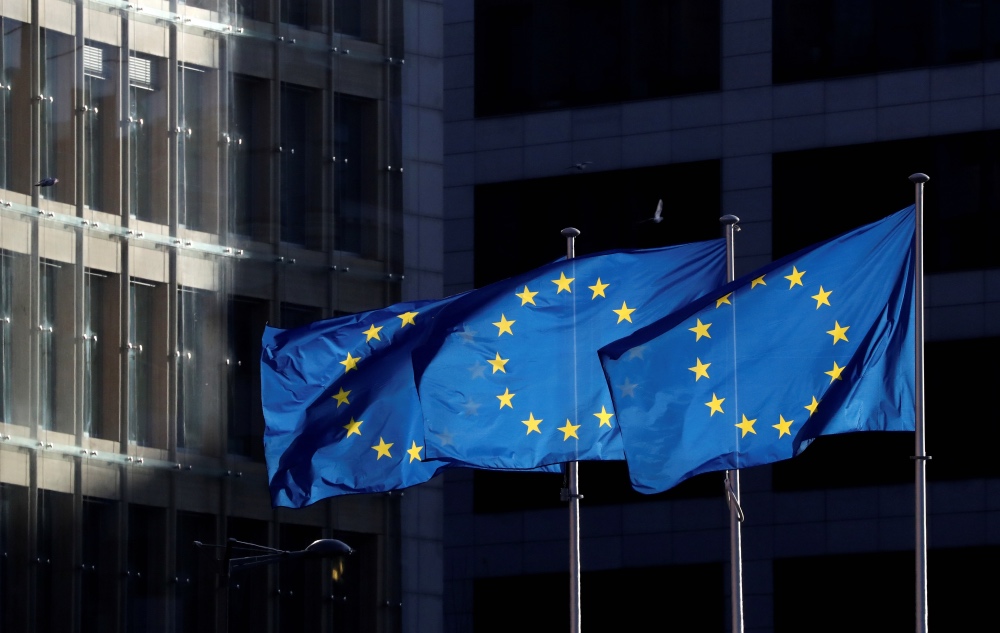London, UK/Addis Ababa. Ethiopia
Thomson Reuters Foundation
Eritrean activists sued the European Union on Wednesday and asked it to halt €80 million in aid to the east African nation, saying the money funded a scheme built on forced labour.
The Netherlands-based foundation Human Rights for Eritreans filed a lawsuit to the Amsterdam district court, accusing the EU of financing a major road renovation project that relies on forced labour and of failing to carry out due diligence.

European Union flags fly outside the European Commission headquarters in Brussels, Belgium, on 12th December, 2019. PICTURE: Reuters/Yves Herman/File Photo
Some of the labourers belong to Eritrea’s national service, condemned as forced labour and slavery by the United Nations and European Parliament, according to lawyers backing the lawsuit.
The Netherlands is host to a large number of Eritrean migrants and pays toward the project as a member of the EU.
The European Commission – the EU’s executive arm – said in response that it reserved the right to establish its legal and factual arguments before the Amsterdam court, in accordance with applicable law.
A spokeswoman said it was guided by EU principles such as democracy and the rule of law, as well as international law.
Eritrea’s information minister, Yemane Ghebremeskel, questioned the credibility of the FHRE and said the lawsuit was typical of its “demonisation campaigns”.
“The accusations emanate from a very small but vocal group, mostly foreigners who have an agenda of ‘regime change’ against Eritrea,” he told the Thomson Reuters Foundation by email.
Eritrea signed a peace deal with Ethiopia in 2018, raising expectations that a long-standing system of universal conscription would be scaled back. Yet Human Rights Watch last year said no changes had been made to a “system of repression”.
Unlawful
The Dutch law firm backing the lawsuit – Kennedy Van der Laan – said it was seeking court rulings that the roads project was unlawful and that the EU should cease support.
“The EU has normalized and given an acceptable face to a practice which has been universally condemned by the international community and is a clear violation of the most fundamental human rights norms,” the firm said in a statement.
Emiel Jurjens, an attorney at KVDL, said the FHRE raised the issue in April 2019 with the EU, which rejected its criticism before announcing further funding for the project in December.
He said the European Parliament was set to vote on Thursday on a motion to freeze EU development spending to Eritrea.
The €80 million fund a project to reconnect Ethiopia and Eritrea following the peace deal and was dispersed in two tranches last year from the EU Emergency Trust Fund for Africa.
Yet despite acknowledging the labour would be performed by members of Eritrea’s national service, the EU refuses to do due diligence, has no oversight of the project, and relies on information provided by the government, according to KVDL.
Rights groups and Western governments have said the system of conscription amounts to indefinite military service that forces thousands of Eritreans to flee the country each year.
Many head for Europe, which hopes that by funding work at home it can curb the flow of African migrants to its shores.






